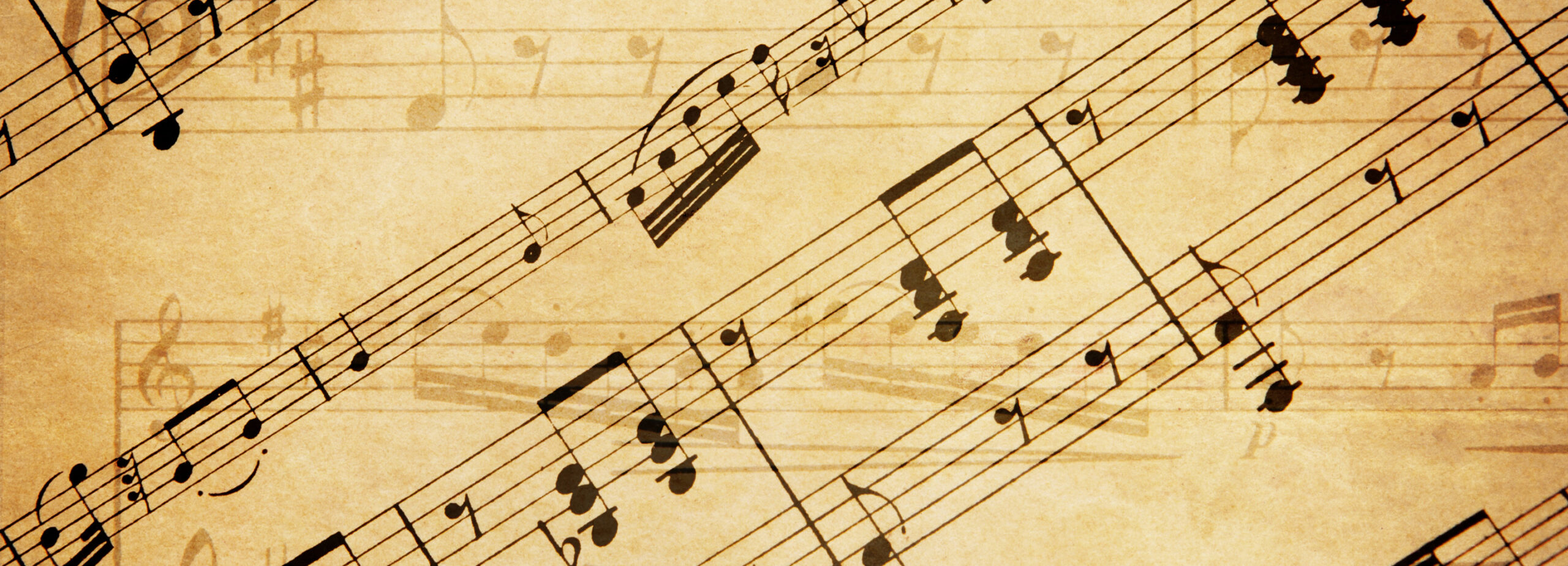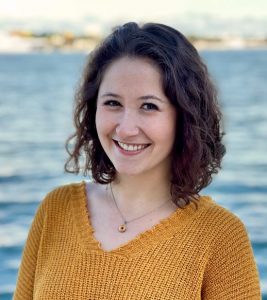Community Blog “What Brings You Joy?”: The Many Paths to Rabbinical/Cantorial School

There is no one path to rabbinical or cantorial school. Rabbis and cantors come from a variety of geographical and socio-economic locations, life situations, and educational backgrounds. If you’re considering ordination, learn more at hebrewcollege.edu.
 I never considered being a clergy member. As much as I loved being involved in the Jewish community, I always thought, “that’s not the life for me.” I wanted a “standard” job. I wanted reliable, predictable 9-5 hours. It was what I had always known. In the midst of the hustle and bustle of everyday life, I was used to being on the go, and was always working towards the “next step.” I had placed myself and my future within the confines of a box. I had never taken the necessary pause that allowed me to consider my future fitting anywhere outside of this box. With the outbreak of COVID-19, my workplace shut its doors. Life was on hold. I had an endless amount of time to reflect and process. It took a pandemic for me to re-evaluate the boundaries of my box and realize that, within its borders, I was sacrificing my passions.
I never considered being a clergy member. As much as I loved being involved in the Jewish community, I always thought, “that’s not the life for me.” I wanted a “standard” job. I wanted reliable, predictable 9-5 hours. It was what I had always known. In the midst of the hustle and bustle of everyday life, I was used to being on the go, and was always working towards the “next step.” I had placed myself and my future within the confines of a box. I had never taken the necessary pause that allowed me to consider my future fitting anywhere outside of this box. With the outbreak of COVID-19, my workplace shut its doors. Life was on hold. I had an endless amount of time to reflect and process. It took a pandemic for me to re-evaluate the boundaries of my box and realize that, within its borders, I was sacrificing my passions.
In college, I changed my major three times. As graduation approached, I knew that I had to settle on something, and finally set my sights on becoming a speech and language pathologist. After graduating, I began working in a pediatric speech clinic, and was well on my way to graduate school. Three months into the pandemic, I had a phone call with my sister-in-law that changed everything. I explained that my next step was to apply to graduate programs, but I simply did not have the motivation to look into which programs interested me. My sister-in-law stated, “don’t you think that’s your body’s way of telling you that maybe this isn’t what you’re supposed to be doing with your life?” to which I replied, “Well…I don’t know what else I would do at this point.” She emphatically told me that that is not a reason to go into a field. She proceeded to lead me through a series of self-reflection questions and journaling prompts. I spent a few days working through questions such as “what brings you joy?” “when do you feel most impactful?” and “when do you feel the most yourself?” When I read back through my answers a few days later, I noticed a common thread. My answers to these important questions always included singing with people in communal and spiritual settings. When I reported back to my sister-in-law, she asked why I hadn’t considered being a cantor. In typical-me fashion, I laughed. I gave her all of the reasons that it didn’t make sense for me. And her response was… “who says you can’t have it all?”
Fast forward to a year later. I enrolled in Hebrew College as a cantorial student and was about halfway through my first semester of Mekorot when the idea of transferring into the Rav-Hazzan program began to intrigue me. At first, I shrugged it off, thinking “becoming a rabbi was definitely not a part of the plan.” But as the end of my first semester of school at Hebrew College was coming to a close, I remember feeling that something in me was pushing me towards transitioning into the dual ordination program, and my sister’s question remained echoing in my head: “Who says you can’t have it all?”
I originally chose to be a cantor instead of a rabbi because text study was “not my thing,” Torah was “inaccessible,” and I wanted to use music as a connector to Judaism. I had told myself that I did not “fit the rabbi profile.” But over the course of my Mekorot year, my opinions changed. As the only cantorial student in my cohort, I was originally worried that I was going to feel alone, alienated in my experience, and different from the rest of the students. But my cohort rallied around me and fully enveloped me in learning with them. Their recognition of my experience made me feel safe, seen, and heard by my community. I deepened my relationships within my cohort. As I continued to study alongside highly engaged, versatile rabbinical students in chevrutot, they challenged me to delve into text study and improve my technical skills. They charged me with sharing my voice, both musically and with leadership. They gave me a platform to enhance my confidence and potential for serving a larger, more diverse community. I credit my cohort with being one of the first reasons that I began to consider the rabbinate, both because I did not want to stop deepening my relationship with them in and out of the beit midrash, and because they believed in me in ways that I did not yet believe in myself.
As my confidence grew with my technical study skills, I began to understand that Torah was not this inaccessible, scary text that was only relevant to the most brilliant Hebrew scholars. Throughout Mekorot, I began to invest in my own relationship with Torah. I started to develop my own opinions on what Torah is and how it functions in our lives. It tells stories of our people, legacy, and history. It promotes tzedek, giving us a framework to address social issues in our world. It teaches us about human dignity, providing a lens through which to empathically and sensitively consider people of all different backgrounds, abilities, races, etc. It charges us with the mission of tikkun olam, repairing our world, so that we may leave our home better than it was when we entered for generations to come. I found joy in parsing verbs, creating meaning out of nothing, wrestling with lines of text that made absolutely no sense at first glance, but created a beautiful picture as I was able to put puzzle pieces in place. If you had asked me about my thoughts on text study a year prior to starting at Hebrew College, I would have said it’s something I’ll get through. I never saw it coming, but after a year of learning, I fell in love with text study.
During the Hebrew College Fall Orientation 2022, our teachers guided us through conversations about Torah. One teacher expressed a thought that hit close to home for me: we must treat Torah as a relationship, as opposed to an object. He said that the miracle of being in a relationship is that both sides change. This is exactly what happened to me, and to Torah, throughout my Mekorot year. I changed, I fell in love with text study, and I saw myself differently. Torah changed, Torah became a beautiful well of knowledge and connection, and Torah became a partner in my learning. Torah was no longer inaccessible. In fact, it was inviting, exciting, and deeply comforting. Other teachers guided us through conversations about Am Yisrael. We started the conversation by trying to define who “we” are and then looked at the rabbinical school’s Semicha Document. While working through the text of this document, I found myself drawn to the line that roughly translates to the role of a rabbi being “to draw the hearts of Israel near so that each individual might find their own path in Torah.” I spent time with this line in the context of my goals as a future clergy member. My ultimate goal is to strengthen the sustainability of the rising generation’s connection to the Jewish people—to help them find their own path in Torah. By continuing to develop my own relationship with Torah, challenged and held by both the rabbinical and cantorial school curriculums, I realized that I would be able to more effectively guide teens and youth who are striving to be active agents in their own Jewish lives.
Now, I am a rav-hazzan student. I am studying to be a rabbi, as well as a cantor. I believe the merging of the two roles will support me in being the most impactful, spiritual, and far-reaching Jewish spiritual leader I can be. While I still find music to be the tool that connects me most deeply and powerfully to my Judaism, I now also know that text study can be my thing. Torah is accessible to me. The “rabbi profile” is what I make of it. It is ever evolving, as am I, as a future clergy member. I did not choose this path to clergyship because it would be easy. I chose this path because it is meaningful, soulful, and just right for me. I am prepared to put in the work, show up with every part of myself, and invest my learning in becoming a skillful, knowledgeable, far-reaching, and passionate rav-hazzan.
Hebrew College offers a wide range of graduate degree programs to prepare you for or advance your career in Jewish leadership. Our graduate degree programs include Rabbinical Ordination, Cantorial Ordination, Master of Jewish Education, and Master of Arts in Jewish Studies.

